Wednesday June 7th 2017
What a week! Having just returned from the international wrestling training camp in Sardinia Italy, I’m considerably more tanned and well rested from my trip. While it may have seemed like I was on an extended vacation, the camp was long and a little intense from time to time but was at the same time rewarding. A wrestling training camp is something that any wrestler at one point in their career will go through and it can be a memorable experience. You may travel to a place you’ve never been, go with people you wouldn’t normally go with and go outside your normal routine and comfort zone. These can be challenges to overcome, but hopefully, pleasant challenges.
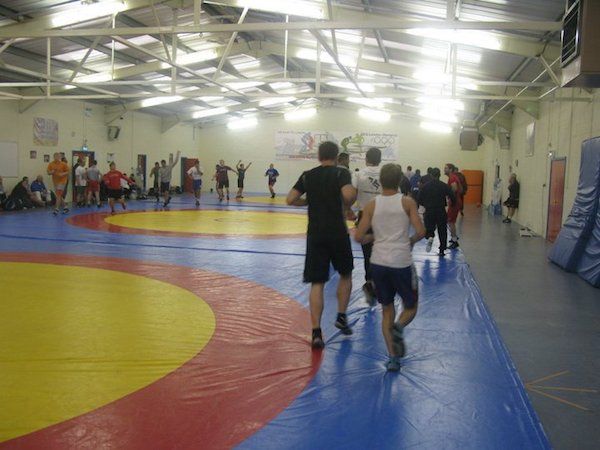
Manchester England Training Camp 2010
As a wrestler and a coach, I’ve been to several camps in Spain, Moldova, England, the United States, Puerto Rico, Canada, Israel and now Italy and with that wealth of experience, I can honestly say that each one has been unique, but with a reoccurring theme if that makes any sense.
I would probably guess that when the trips are being organized, the organisers of the camp try to cater to a wide variety of styles and athletes. What we see in the training camp may not necessarily be indicative of how that club runs its normal practices. What I’ve seen so far in every training camp is the following.
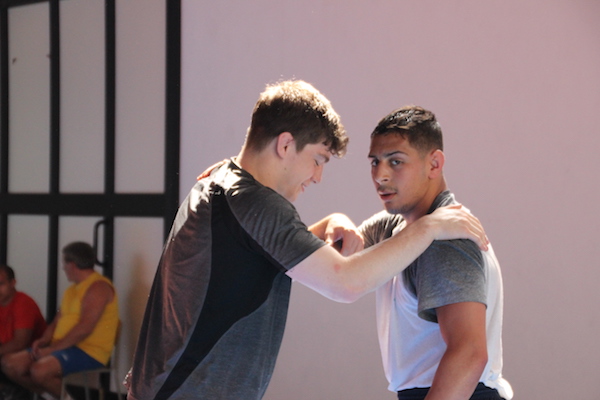
Too cool for technique!
The practices in the training camp begin with a warm-up, followed by some technique or someone showing a technique. It then progresses to situations and then wrestling itself. Rinse and repeat for the duration of the camp. Where we see the variations and therefore, the uniqueness is in the intensity of practice and the type of techniques that they choose to show. Each club and country will invariably take on the style of wrestling of the head-coach. That style will have worked for them and with a few minor tweaks is passed on from generation to generation.
While some coaches can be biased and probably believe that their technical acumen is better, these training camps serve as a valuable lesson. If your athletes are less skilled than the participants of the camp, then there should be no limit to the things that they can learn. If your athletes happened to be more skilled than those participating at the camp, than this can also serve as a fine-tuning session. This helps wrestlers to perfect certain skills on a variety of opponents that they may not have access to otherwise.
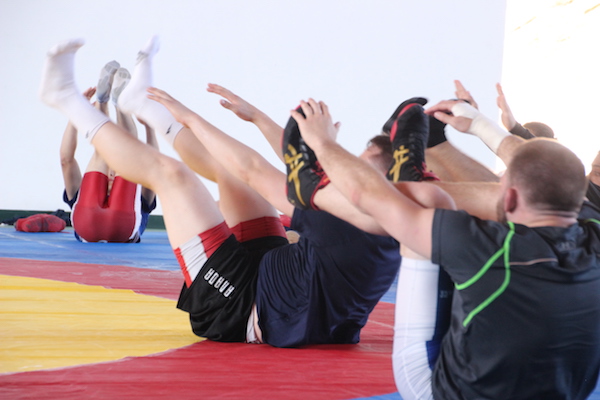
Trying something new
One other aspect that may be present in the training camp is the fact that athletes may be on the mat every single day of the camp. This can also be a departure from the normal routine of athletes, particularly younger ones as they may be only on the mat once every other day for a maximum of 3-4 days a week. This can also have an effect as muscle fatigue and wear and tear can become a factor. While different clubs have their own opinion on how much mat time is needed, particularly in training camps before major tournaments, my personal experience has shown that such a drastic change in an athletes regimen before a major competition may have more detrimental effects for that tournament. As always, this has to be analyzed in a case-to-case situation.
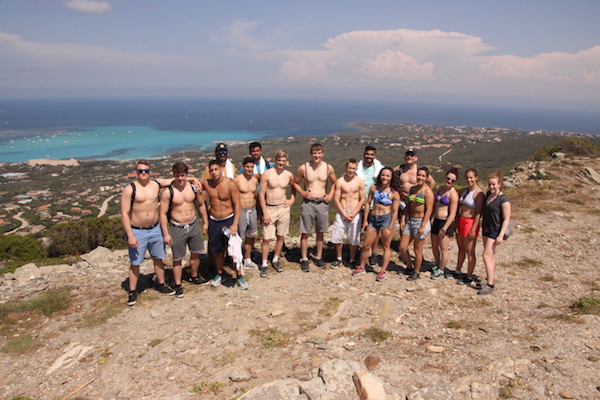
Montreal YMHA, Akhara of Champions and the Cochrane Cowboys on top of the world
Another thing that I’ve always found beneficial to the personal development of an athlete that can come from these training camps is the ability to visit and sightsee. While younger athletes may not gravitate to this much at first, it can have many benefits in the future for their development as adults. Seeing and immersing yourself in another culture can have many benefits both on and off the mats.
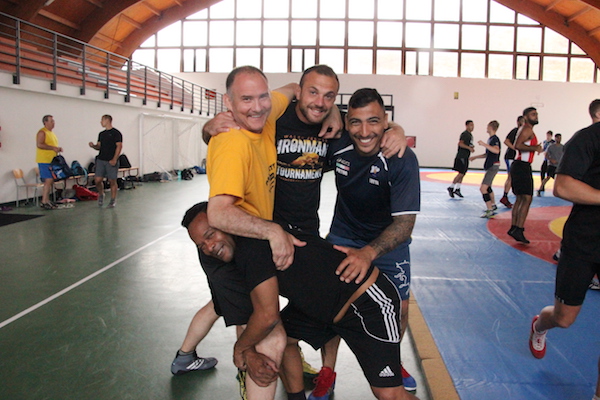
Coaches creating contacts
Finally, the last apsect of the training camp would be the building of friendships. Athletes from different countries can make lasting friendshipts, even with their opponents. Coaches will create networks with other coaches and create communities. It’s these intangibles that make the participation in training camps a vital part to the development of athletes.
